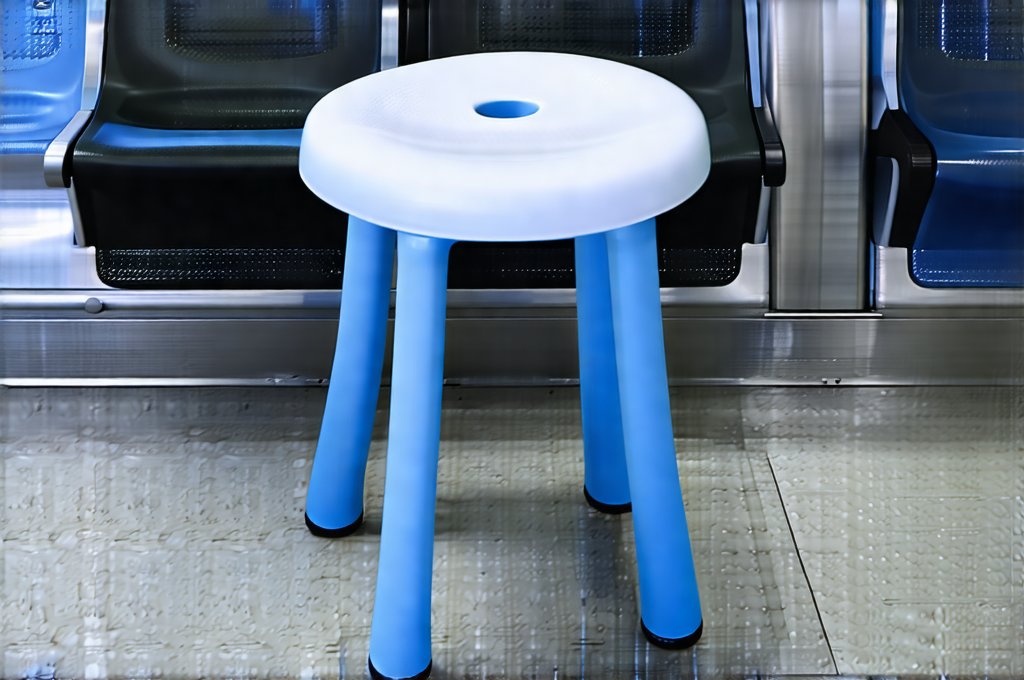The modern world often demands extended periods of sitting – in offices, during travel, and increasingly, as part of our daily routines. While seemingly innocuous, prolonged sitting, particularly during long commutes, can significantly impact digestive health, leading to a frustratingly common issue: hard stool buildup. This isn’t merely about discomfort; it reflects a systemic slowing down of the body’s natural processes, with potential ripple effects beyond just bowel movements. Understanding why this happens and what practical steps we can take to mitigate it is crucial for maintaining overall wellbeing in our increasingly sedentary lifestyles.
This phenomenon stems from a complex interplay between gravity, reduced physical activity, and often, subtle shifts in hydration and diet when traveling or commuting. When upright and active, gravity assists the natural movement of waste through the digestive system. Sitting for long durations compresses the abdominal organs, hindering this process. Furthermore, commutes are frequently associated with less-than-ideal dietary choices (convenience foods, sugary drinks) and decreased water intake, exacerbating the problem. It’s a situation where multiple factors converge to create an environment ripe for constipation and subsequent hard stool formation. Understanding stool signs can help you stay proactive about your health.
Understanding the Physiological Mechanisms
The digestive system relies heavily on peristalsis, the wave-like muscle contractions that move food along the intestinal tract. Prolonged sitting directly interferes with this process, essentially ‘putting the brakes’ on movement. Think of it like trying to flow a river through a narrow channel – the constricted space slows everything down. Moreover, the colon absorbs water from waste as it moves through the digestive system; slower transit times mean more water is absorbed, resulting in harder stools. This isn’t an immediate effect for everyone, but cumulative impact over consistent long commutes can make a significant difference.
The role of gravity cannot be overstated. When we are upright and moving, gravity naturally assists with bowel movement. Sitting negates this benefit, allowing waste to linger longer in the colon. It’s also important to recognize that stress – often an inherent part of commuting – can impact digestion. Stress hormones like cortisol can disrupt gut motility (movement) and contribute to constipation. This creates a vicious cycle: sitting leads to slower digestion, which potentially increases discomfort and stress, further hindering digestive function. In fact acid reflux often worsens during stressful times.
Finally, consider the impact on pelvic floor muscles. Consistent pressure from prolonged sitting weakens these crucial support structures, making bowel movements more difficult over time. A weakened pelvic floor can also contribute to incomplete evacuation, leaving residual waste in the colon and compounding the problem of hard stool buildup.
Counteracting Commute-Related Constipation
Preventing hard stool buildup during long commutes isn’t about dramatic lifestyle changes; it’s about incorporating small, consistent strategies into your routine. Prioritizing hydration is paramount – aim for regular sips of water throughout your journey, rather than large gulps infrequently. This keeps the digestive system consistently lubricated and aids in softening stools. Dietary choices are also key. Opt for fiber-rich snacks like fruits, vegetables, or whole-grain crackers instead of processed foods.
Beyond hydration and diet, incorporating movement whenever possible is crucial. If you commute by train or bus, stand up and walk around during stops. For car commuters, plan regular breaks to stretch your legs and move around. Even simple exercises like ankle rotations or pelvic tilts while seated can help stimulate digestive function. Consistent small changes are far more effective than infrequent large ones. Consider mindful breathing exercises too – these can help reduce stress levels and promote relaxation, indirectly benefiting digestion. You may also want to review digestive habits that help during travel periods.
The Role of Fiber in Stool Softening
Fiber is often touted as the cornerstone of good digestive health, and rightfully so. It comes in two main types: soluble and insoluble. Soluble fiber dissolves in water to form a gel-like substance, softening stools and making them easier to pass. Sources include oats, beans, apples, and citrus fruits. Insoluble fiber adds bulk to the stool, stimulating bowel movements. Good sources are whole wheat bread, vegetables like broccoli, and bran.
- A balanced intake of both types is ideal for preventing constipation.
- Aim for at least 25-30 grams of fiber per day – gradually increase your intake to avoid bloating or gas.
- Pairing fiber with adequate hydration is essential; otherwise, it can actually worsen constipation.
It’s also important to remember that different people respond differently to various types of fiber. Experimenting with different sources and observing how your body reacts is key to finding what works best for you. Don’t rely solely on fiber supplements – whole food sources offer additional nutrients and health benefits. Understanding stool bacteria ratios can also help refine your approach.
Hydration Strategies for Commuters
Staying adequately hydrated can be challenging during commutes, especially if you’re focused on driving or working. However, it’s arguably the most important factor in preventing hard stool buildup. Carrying a reusable water bottle and consistently sipping throughout your journey is a simple yet effective strategy. Avoid sugary drinks like sodas and juices, as they can actually draw water from the colon, exacerbating constipation.
- Set reminders on your phone to drink water every hour.
- Choose water-rich snacks like fruits and vegetables (watermelon, cucumbers) to contribute to your fluid intake.
- Be mindful of caffeine consumption; while moderate amounts are generally fine, excessive caffeine can have a diuretic effect, leading to dehydration.
Consider herbal teas as an alternative – chamomile or ginger tea can be soothing for the digestive system. Proper hydration is not just about volume; it’s about consistent intake throughout the day. Looking at early signs from stool tests can help you stay informed.
Incorporating Movement into Your Commute
Even limited movement during a commute can make a significant difference. If you’re driving, plan to park further away from your destination and walk the extra distance. During traffic stops, do simple stretches in your seat – shoulder rolls, neck rotations, or leg extensions. Public transport offers more opportunities for movement; stand instead of sitting whenever possible, and walk around during transfers.
- Utilize short breaks to perform quick exercises like squats or lunges if space allows (and it’s safe).
- Consider walking part of your commute if feasible – even a 15-20 minute walk can significantly boost digestive function.
- If you have a standing desk option at work, utilize it frequently after your commute to counteract the effects of prolonged sitting.
Remember that consistency is key. Small bursts of movement throughout the day are more beneficial than infrequent long workouts. The goal isn’t to transform into an athlete during your commute; it’s simply to break up periods of prolonged inactivity and stimulate digestive function. You might also need meal adjustments to support a healthy lifestyle.
Ultimately, hard stool buildup during long commutes is a preventable issue. By understanding the physiological mechanisms at play and implementing simple strategies related to hydration, diet, and movement, you can proactively safeguard your digestive health and maintain overall wellbeing even amidst demanding schedules. It’s about taking small steps towards prioritizing self-care, one commute at a time.


















